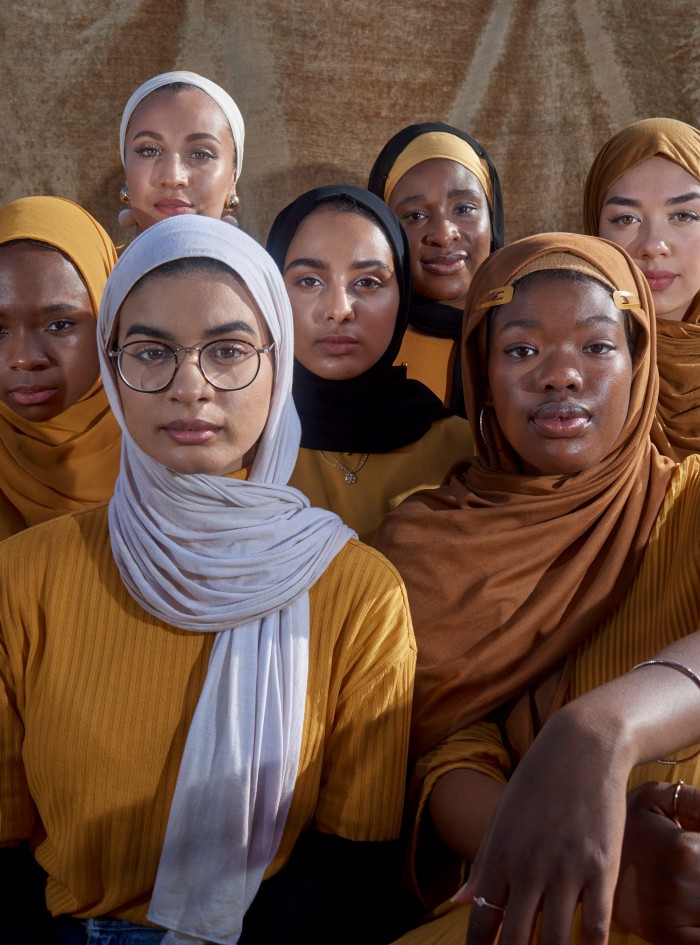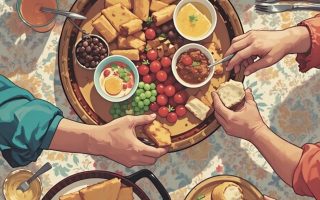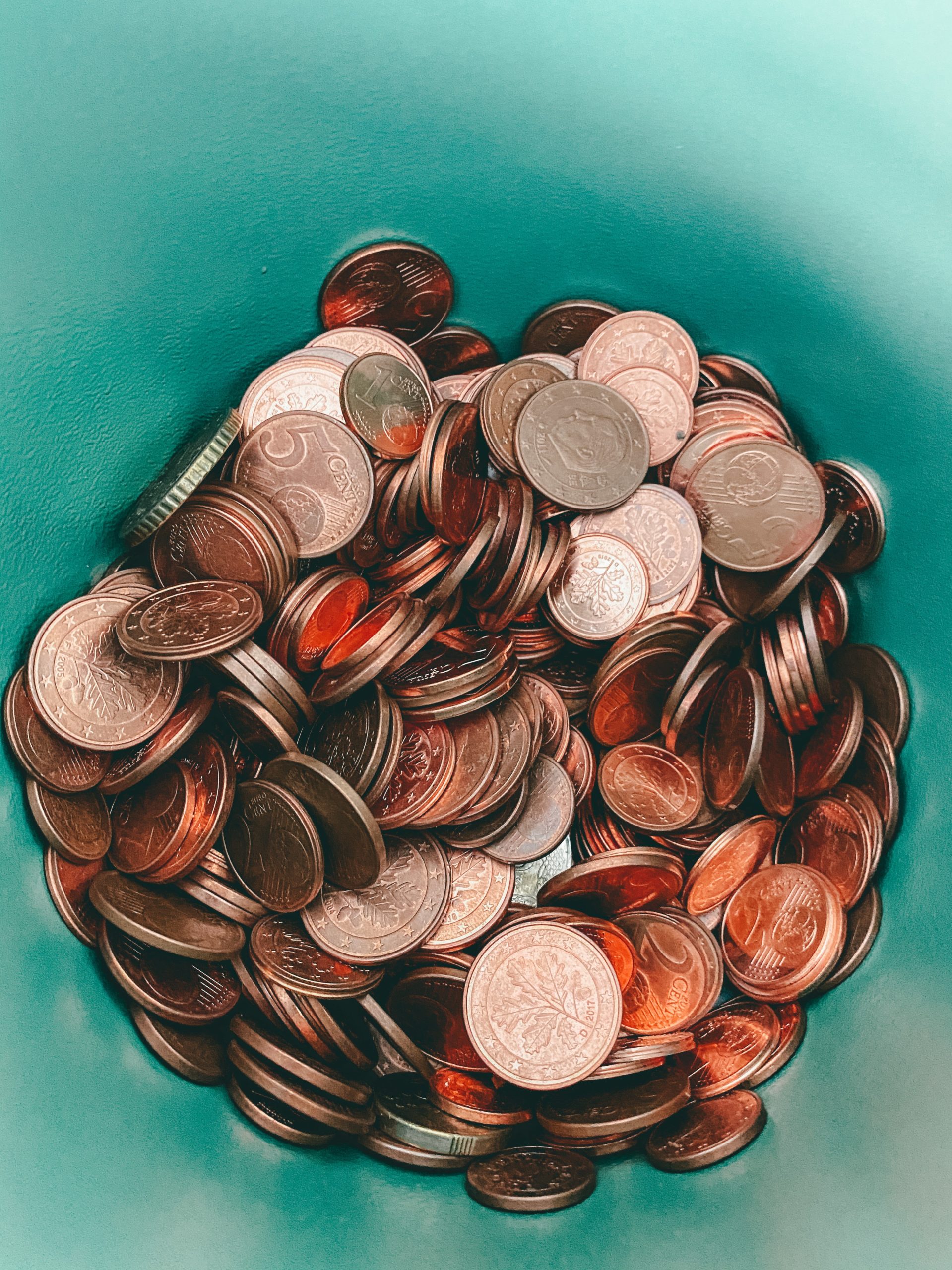Featured Photograph by Nadia Correia
Representation of Muslim Women
“I am a Muslim woman.” This is a phrase that contains two major identity markers that intersect to shape identities and experiences for millions around the world. Islam is the world’s second-largest religion — after Christianity — and the world’s fastest-growing major religion (Lipka). As of 2015, it was reported that there were approximately 1.8 billion Muslims around the world — which is about 24% of the global population (Lipka). According to Michael Lipka’s 2017 article on “Muslims and Islam: Key findings in the U.S. and around the world,” there are approximately 3.45 million Muslims in the United States — albeit only being 1.1% of the country’s population, I find it incredibly bizarre that Hollywood has yet to portray Muslims accurately. Though representation is slowly — and I mean slowly — increasing, and becoming more accurate, we still have a long way to go.
While both Muslim men and women are misrepresented, my main concern for this post is in regard to the way Muslim women are portrayed, because the evolving portrayal of Muslim characters in mainstream movies and TV shows is very one-sided. Nowadays, Muslim men can appear in the media, not as terrorists, but as regular people! One of my favourite TV shows, Bones, features one such character. Arastoo Vaziri — played by Persian-American actor, Pej Vahdat — is a Muslim-American intern at the Jeffersonian Institute.
Though not a main character in the show, Vaziri’s experiences as a devout Muslim and his struggles in navigating a world post 9/11 are highlighted in various episodes across several seasons of the show. Vahdat has even expressed how grateful he is to get to play a role like Vaziri’s, considering the fact that “being a Middle Eastern actor, you don’t get [the] open-mindedness that they (Hart Hanson and Stephen Nathan — the show’s executive producers) have” and that he’s “been blessed … in [his] career, [since] a lot of [his] friends are always playing the terrorist or just a bad guy” (Bernstein). While this is a very refreshing step away from the stereotypical Muslim extremist, Arastoo Vaziri is just one character, out of thousands of others who have yet to be portrayed accurately. Moreover, Vaziri is part of the small group of male Muslim characters who are beginning to be represented accurately, which leaves me asking where accurate depictions of Muslim women are.
Growing up, I don’t recall ever seeing myself represented in mainstream media. For as long as I can remember, the media has been reinforcing this idea that Muslim women are weak, submissive, oppressed, mindless individuals who are either brainwashed or forced into the situations they are depicted in. Some of the biggest tropes include the terrorist, the submissive wife who is brainwashed or abused into doing her husbands bidding, the (increasingly popular) Muslim woman/girl who feels the need to be freed from the restraints of her religion — Elite— or the Muslim woman/girl who is outcast by her community when a strand of hair unintentionally escapes her hijab — 911: Lone Star (Khan; The Express Tribune; Vulture).
When I began to realize exactly what was being conveyed through these TV shows and movies, I went through a series of emotions. First, I felt hurt. I was hurt because I felt like I was being reduced to a brainwashed individual with no personal freedom when I know that that is the exact opposite of what I am. Then, I felt angry, because it’s unfair. It is incredibly unfair that there are people out there, who are not Muslim women, who feel like they can tell us and others about who we are. Now, I’m just tired, because it feels like these narratives about us will never stop coming, and I feel like I can’t do anything to change that. Some of you might be sitting there, wondering why representation matters so much to me. Why am I wasting my energy, writing about how producers in Hollywood fail, time and time again, to represent me in an accurate manner?

In a world driven by the media, representation matters. It is a way to let the consumer know that they are understood, acknowledged, and appreciated. As Riz Ahmed — a Muslim, Emmy-winning actor — put it, “representation is not an added thrill [because] what people are looking for is a message that they belong” (Khan). While minorities don’t need the media to validate them, we want the media to stop using us as side-plots in their stories. We are not “token characters” that show up in content just so directors and producers can check another box off of their “woke” checklists. We want to be represented because we are conscious individuals, who are active participants in the societies portrayed in the media. In addition, representation is so important because an extensive amount of learning is done through media consumption. While it may not be school, we are exposed to so much information about global cultures and events, that we otherwise wouldn’t have access to without mass media. As Marshall McLuhan said so many years ago, the media has “transformed the world into an interconnected tribe [… called] a ‘global village’” (CBC Archives). This means that I can learn about cultures and religions that originated half-way around the world, from the comfort of my own couch.
I didn’t want this post to be a rant, so I decided to collect some insight from friends and family — Muslim and non-Muslim — about the misrepresentation of Muslim women in mainstream media. I asked everyone a series of questions to learn about how they feel about these portrayals, how they cope with them, and what they would do differently from producers to depict Muslim women, not as caricatures, but as regular people.
Do you see yourself represented in Muslim women in TV shows, movies, books, etc.?
I wasn’t exactly sure what to expect when I first sent out the questions, but I was pleasantly surprised by the conversations that my friends and family cultivated amongst themselves. As you may have guessed, I do not see myself represented in mainstream media. To me, looking at “Muslim” characters is like looking at aliens. As with any stereotype, these characters and their personalities are twisted so severely to fit in to the narrative that is being conveyed, that they can’t be anything but alien.
Everyone I asked expressed the same feelings.
“I don’t feel like I see myself [or] any of us represented in [the media]. Yes, they sprinkle in a girl with a hijab every once in a while, but that’s literally where it stops.”
A few of the interviewees agree that “representation has increased in the last few years,” however, “it’s almost always in an inaccurate way”. One subject expressed that “none of these characters relates to [what] I do every day, except for the fact that they’re Muslim,” and for me, even that is a generous statement, because “there is usually this idea that Muslim women are… oppressed, and that… Western society must free us from the shackles, but this is all just a popular misconception.” We are not oppressed. We do not lack any personal freedom. So why is mainstream media so hellbent on portraying us this way?
How have these (mis)representations affected the way you see yourself as a Muslim woman?
“[The media is] constantly trying to … define Muslim women.”
Growing up, I thought I had to suppress my identity as a Muslim because I felt like it made me stick out like a sore thumb. I grew up watching Disney Channel and Cartoon Network, where Muslim characters were non-existent. As I got older, I only saw Muslims portrayed as terrorists. At 22 years old, I am yet to see a Muslim woman in a TV show or movie, who has not been forced into the Hijab or felt trapped by her religion and family. I am yet to see a Muslim woman who is happy, thriving, and living life to the fullest, like so many of the Muslim women I know personally. One of my interviewees states that “Had I been exposed to [this] current rhetoric as a child, I would’ve lost my identity. When you are younger, you believe what the media tells you”. It wasn’t until a few years ago that I realized that what I saw on the media wasn’t the absolute truth. For so long, like another one of my interviewees, “[I feel] forced to dilute myself to be understood,” because “if we’re in the media, we’re framed in a negative light”. I tried to dial down my identity as a Muslim, so that I could fit in, and “be cool”.
Whenever there is a Muslim woman in the media, she’s always unhappy with her hijab on, and once she musters up the courage to take it off — BAM! — all her problems are solved, “which isn’t the case with the majority of Muslim women who do wear the Hijab”. All of this misrepresentation made me compromise my identity because I had this idea in my head that I wasn’t good enough as I was, and that I had to be more like the people I saw on TV. As I write this, I can’t help but feel devastated for my younger self, and so many other young Muslim girls who may have gone through this same exact experience. As a friend of mine stated, “misrepresentation is a huge factor as to why Muslim women are often subjected to discrimination. [While] these misrepresentations may be viewed as harmless from the outside,” they have profound effects on us as individuals, and on the way, we are treated in public. She continues, “as a Muslim woman, I am either fetishized due to people being curious [about] what I look like under the Hijab, or I am demonized and seen as a barbarian”.
Having this same idea reinforced to us, time and time again is detrimental to our mental health because we “constantly have to go above and beyond to show that [we are just regular people]”. Unfortunately, this is something that so many of us have “grown accustomed to”. Finally, “the media perpetuates the idea that [Muslim women] need to be liberated,” and “people who aren’t Muslim, or don’t understand [our religion], get this idea that we’re all forced or oppressed”. This narrative plays directly into the hands of the Islamophobes who are trying so desperately to portray Muslims as Public Enemy Number One.
How have you coped with seeing these portrayals as representations of who you are?
Like I said in my introduction, now, I’m just tired.
“[We] literally just shake our heads and cringe. I can’t watch anything with a ‘Hijabi’ [in it] because it ruins the whole movie/show. I turn it off and just go back to other shows that don’t have Muslims [in them], unfortunately, because they are more realistic.”
Avoiding media with “Muslim” characters is the easiest thing to do at this point, because the characters are exasperatingly tone deaf and out of touch with the reality of who we are. Unfortunately, movies and TV shows that do have Hijabis in them — Spiderman: Far From Home or Grey’s Anatomy — don’t bother to delve into their stories.
What would you do differently from movie producers, authors, etc., in representing Muslim women?
Everyone I asked, gave me the same answer: Talk to Muslim women.
We all know that research is conducted when a movie or show is going to have a character that belongs to a certain field of work or community, in it. Bones, which is inspired by the life and work of Dr. Kathy Reichs, a forensic anthropologist, and crime writer, had expert help on all twelve seasons of the show. As an executive producer, Reichs was able to use her expertise on the field of forensic anthropology, and apply it to the show. In an interview with Ira Flatow, Reichs stated that “everything we use on ‘Bones’ is real — the technology, the methodologies, the terminologies” (NPR). This is just one example of media producers using experts to corroborate what they include in their scripts. Why is it that when a Muslim character is part of a movie or show, that no one is consulted? (Please don’t tell me someone is consulted, because I’ve never met a Muslim remotely similar to the Muslims portrayed in the media).
Toget a broader perspective, I decided to ask a few of my non-Muslim friends about the Muslims they’ve seen on TV.
Do you see Muslim women represented in the media?
Each of my friends answered “no” to this question, citing very little representation in the media they consume.
What impression is left on you after consuming media that has Muslim women in it?
“This one is hard to answer because I’ve always had friends that are Muslim, so I know [that] it’s just another unfair trope based on outdated and honestly just untrue stereotypes, kind of like the angry Black woman. Being a part of another minority group that goes through the same treatment granted me the perspective to not judge others based on what I see in the media.”
As stated earlier, my friends cited the various stereotypes used on Muslim characters, that portrayed them as “passive [individuals] with no autonomy… [living] in fear of their husbands”. Only one of my friends was able to say that the representations she has come across within the media aligned “somewhat” with the Muslim women she has encountered, however, she continued to say that there is no diversity in the representation.
Does this representation align with the experiences you’ve had with Muslim women?
Once again, each answer was “no”. They stated that the Muslim women they have interacted with are intelligent and well spoken, and much more diverse than those portrayed in the media.
There is so much more to Muslim women, and Muslims in general, than mainstream media allows usto see. We are active participants in society. We are human. The misrepresentations that run rampant in the media affect the way we are perceived, by ourselves, and by those around us. It is so important that the mainstream media fix their representations of us because its reach is worldwide. When they want to include a Muslim character in their media, they should allow us to shape that character, so that we can relate to the character we see through our screens. Whilst production companies in the Middle East may portray Muslim women accurately, they does not have the same reach that production companies in Hollywood have. The mainstream media has a profound effect on the way we view the world, and we need it to represent us as we are, not as caricatures to be used as plotlines. We cannot go to everyone in the world and tell them that we are just like them, so the representations that reach billions of people around the world have to do that for us.
I would like to thank everyone who took time out of their day to answer my questions, and contribute to my post.
References
1. Exclusive Interview: BONES’ Pej Vahdat talks season 8 – Part 1 Assignment X
2. From mute to menacing: why TV’s portrayal of Muslims still falls short | Television | The Guardian
3. Twitter mocks American show’s treatment of Muslim character (tribune.com.pk)
4. CBC Archives
5. Meet The Brains Behind “Bones” : NPR.




